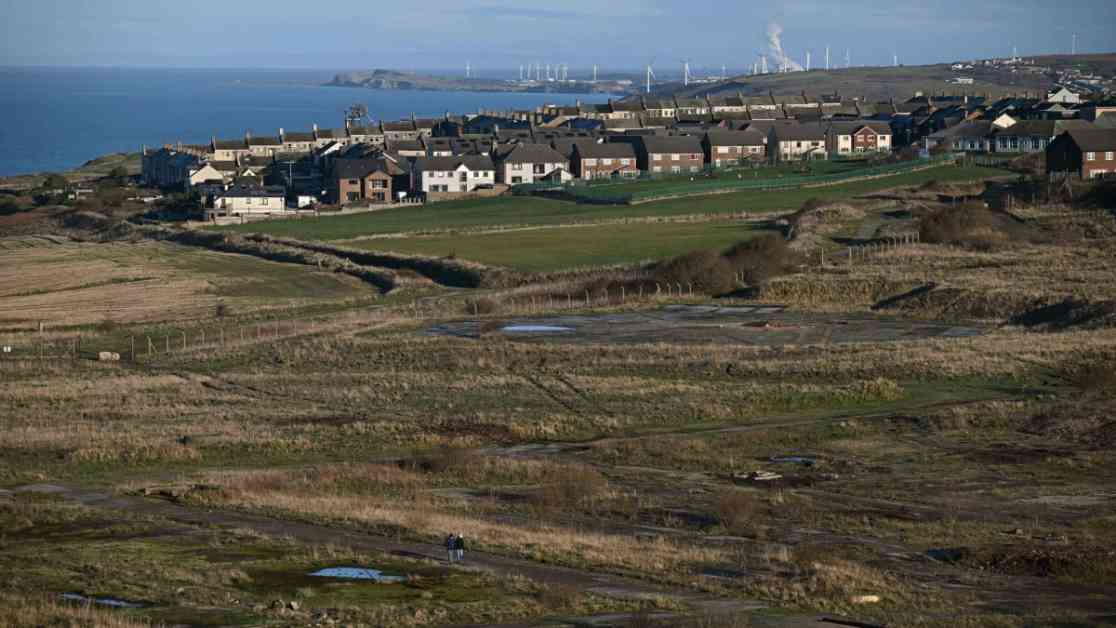The High Court recently made a landmark decision to block plans for the construction of the first UK coal mine in 30 years. The court ruled that the decision to approve the mine was “legally flawed” and would result in a net increase in greenhouse gas emissions. This decision marks a significant victory for environmental activists and demonstrates a growing awareness of the need to transition away from fossil fuels in order to combat climate change.
Background of the Case
The proposed coal mine, located in Whitehaven, Cumbria, was approved by former levelling up secretary Michael Gove in 2022. Despite objections from green campaigners, the government initially rejected claims that the mine would lead to higher carbon dioxide emissions. However, on Friday, Mr. Justice Holgate declared that the assumption that the mine would not increase greenhouse gas emissions was legally flawed.
Friends of the Earth (FoE) and South Lakes Action on Climate Change (SLACC) challenged the government’s decision to approve the mine in court. The UK government suspended its defense of the scheme in July, but the site developer, West Cumbria Mining (WCM), continued to oppose the action. Lawyers representing FoE argued that the decision to approve the mine was hypocritical given the UK’s international advocacy for phasing out coal in energy systems.
Legal Arguments and Court Ruling
During the court proceedings, Paul Brown KC, representing FoE, pointed out that there was no significant need for the coal, as companies like British Steel and Tata had transitioned to using electric arc furnaces. The government had previously accepted that approximately 15% of the coal from the mine would be used domestically. Lawyers representing WCM argued that the mine would have a broadly neutral effect on global greenhouse gas emissions.
The court’s ruling highlighted the importance of considering the emissions created by burning fossil fuels when granting planning permission for new extraction sites. The decision to suspend planning permission for the Cumbria mine could have implications internationally, as similar challenges are being made against fossil fuel projects in other countries. The court’s decision reflects a growing recognition of the urgent need to transition to cleaner energy sources to mitigate the impacts of climate change.
Political Response and Future Plans
The Labour Party, under the leadership of Sir Keir Starmer, has pledged to decarbonize by 2030 and has committed to not granting new licenses to mine coal. The party’s election manifesto includes plans to work with the private sector to increase renewable energy production significantly by 2030. This shift towards renewables aligns with the government’s decision to approve the UK’s largest solar farm, which will generate enough electricity to power 180,000 homes.
The government’s support for renewable energy projects reflects a broader commitment to reducing greenhouse gas emissions and transitioning to a low-carbon economy. As the impacts of climate change become more apparent, there is a growing consensus on the need to prioritize sustainability and environmental protection in policy decisions. The decision to block the UK coal mine represents a step in the right direction towards achieving a cleaner, greener future for the country.
In conclusion, the High Court’s decision to block the construction of the first UK coal mine in 30 years is a significant victory for environmental activists and a step towards a more sustainable future. The ruling highlights the importance of considering the environmental impacts of fossil fuel extraction and the urgent need to transition to cleaner energy sources. As the UK continues to prioritize renewable energy and decarbonization, it sets an example for other countries to follow in the global fight against climate change.













